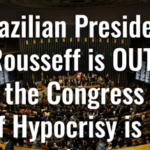Abandoning the Kurds will gain us nothing and strengthen our enemies. We must support them against our mutual foes as the only rock of stability in the otherwise turbulent Middle East.
The Kurds of Northern Syria have suffered immensely throughout history. Indigenous to the region, they have never been granted any significant level of autonomy or self-rule. During the entire existence of the Syrian Arab Republic, they held the uncoveted status of most marginalised group, according to Minority Rights International, and were also subject to appalling levels of arbitrary detention, state-sanctioned torture, and illegal appropriation of private assets.
This was worst under the height of pan-Arabism during the regime of Hafez al-Assad. A report by Chatham House details the severity of the situation; the Kurdish language was banned in public, and its use, as well as Kurdish music and publications, were all strictly illegal. However, little changed even after Assad inherited the throne in 2000, much to the detriment of the Kurdish minority.
This makes the recent resurgence of the Kurds within the context of the same Syria that clamped down on any expression of Kurdish identity so very incredible. The autonomous region of Rojava came into existence in 2013 as regional Kurdish militias formed after the Syrian Arab Army rapidly evacuated vast swathes of territory in the face of roving bands of Islamist terrorists as well as larger organisations like the FSA, JaN, and ISIS. The Kurdish militias coalesced into a single state-like structure around the Democratic Union Party (PYD) and took over governmental and military infrastructure left when the Assadists evacuated.
Rojava had little time to rejoice in its nominal independence from Syria, as it was immediately attacked from all directions. Attacks from terrorist groups within Syria continued, and the people of Rojava found their resolve tested at the long and bloody Battle for Kobanî. The unlikely victory gained by the military wing of the Rojavan government, the YPG, came at the cost of many civilian lives taken by indiscriminate car-bombs and shelling by ISIS forces. Despite the losses, the defeat of ISIS underscored the resolve of the Rojavan Kurds to the world and showed that they would not relinquish their long-desired independence so easily.
Since then, though, it seems as though the situation has gotten only worse. Despite the fact that Salih Muslim Muhammad, head of the PYD, has repeatedly declared that the Rojavan government will not seek independence from Syria, and will instead seek to maintain their status as an autonomous region similar to Iraqi Kurdistan, the Syrian government has effectively cut ties with the region and refuses to grant it military, economic, or any other substantive form of aid. This is despite Muslim’s repeated overtures to the Syrian government and declarations of support against the Islamist groups that wage terroristic war against both entities.
From its northern frontier with Turkey, Rojava is under constant attack. The Turkish government has stated its flat-out unwillingness to accept any sort of autonomous Kurdish state within Syria, independent or not, and have carried out regular bombing attacks against civilian targets in order to weaken the resolve of the Kurdish people. These attacks intensified early this year, ahead of the official invasion force, which entered Syrian Kurdistan in August.
Thus, the fledgling regional government in Rojava found itself fighting a war on three fronts; against ISIS, against Turkey, and at times even against the Syrian Government. Despite repeated attempts at a meaningful peace revolution, this state of outright hostilities has seen little change in recent years. While the US has engaged in sporadic airdrops to assist Rojava in the past two years, its assistance (and promises of assistance) has been noncommittal and indecisive. Russia, however, has proven a much more effective ally, allowing for the YPG to call airstrikes on locations it pinpoints, giving it some much-needed air superiority in the fight against ISIS and other terrorist groups.
Yet, any support given by Russia – in other words, any substantial support at all – has been consistently undermined by the West at every turn. Former British foreign secretary Philip Hammond stated earlier this year that he was “disturbed” by reports of Russian assistance to Kurdish forces in northern Syria, shortly before the British joined the Americans in calling the Russians to ‘get out of’ Syria. Yet they provide no alternative, effectively condemning Rojava to extinction at the hands of Turkey and ISIS.
The performance of the United States has been particularly disturbing. Upon the attempted breakaway of Kosovo in the Balkans, the US sent in its air force to drop an astonishing amount of bombs on Serbia in order to guarantee the independence of the fledgling state. Ensuring the human rights of the Kosovar people and preventing genocide were among the reasons used to legitimise this campaign. Given this, American actions in Syria are difficult to rationalise. They are inconsistent not only with its previous decisions when facing similar circumstances, but also with the idea of America as a nation seeking to uphold international order, prevent genocide and crimes against humanity, and ensure peace in the world.
The United States and Britain have chosen to view Rojava and indeed the Kurdish people not as any other nation or folk deserving of basic freedoms, human rights, and entitled to a minimum standard of dignity, but instead as pawns in a twisted kind of Great Game still being played by Washington politicians against Putin’s Russia. As pawns, the Kurds are to be used when expedient and discarded when they become an inconvenience. And given the muted US response to the Turkish invasion of Rojava last month, it appears to be the case that the ‘inconvenience’ is mounting.
Increasingly, the voices from Western politicians, think tanks and so-called ‘policy analysts’ appear to be mounting. Condemnation of Rojavan institutions by Westerners who hold Rojava to an impossible standard is ever harsher. They critique the autonomous region for not being fully democratic, despite the fact that it is engaged in a war with genocidal opponents whose goal is not only the destruction of the state but also of the Kurdish people as a whole. They would demand that the government cease its conscription, ignoring the existentialist conflict the military wing of the PYD finds itself in, and all the while offering absolutely nothing in the way of an alternative.
Of course, some criticism of Rojava’s government and armed forces is legitimate. There is some evidence to suggest that conscription of those under 18 has happened on occasion, despite the practice being clearly illegal under Rojavan law. There are also grounds to criticise the state structure of the government and the total dominance of the PYD at the expense of other parties.
But these critics are overreaching in their conclusions. They suggest that since problems such as these exist, the West should abandon Syrian Kurds to the wolves.
To do so would be disastrous. Not only would it strengthen the Islamic State, the position of the totalitarian Assad government, but also an increasingly Islamist and autocratic Turkey. It would represent a grievous betrayal of previous promises of support made to the Kurds, and would thus cause the US to suffer a massive blow to its international prestige. But, more importantly, it would constitute a betrayal of the principles we hold so dear; those of universal human rights, international law, and the principle of self-determination as described in the UN charter.
Abandoning the Kurds will gain us nothing and strengthen our enemies. We must support them against our mutual foes as the only rock of stability in the otherwise turbulent Middle East.







Article Discussion